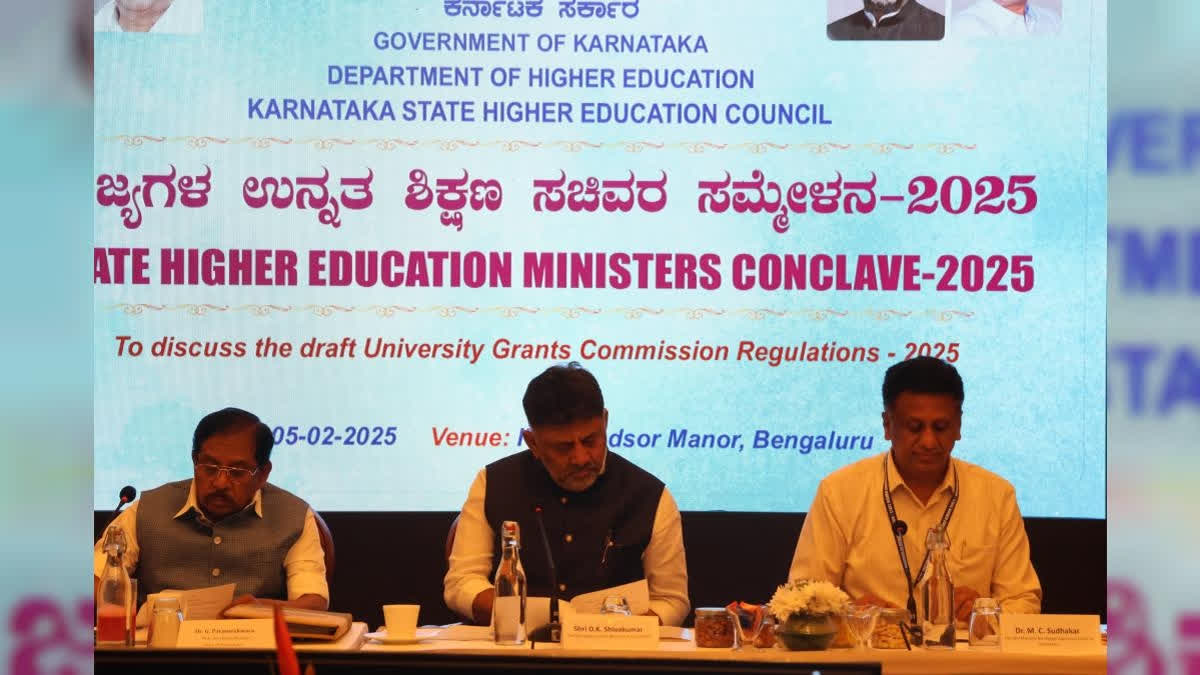Bengaluru:Higher Education Ministers of Karnataka, Tamil Nadu, Himachal Pradesh, Jharkhand, Telangana and Kerala on Wednesday passed a resolution opposing the University Grants Commission's (UGC) draft regulations2025 and urged the Centre to withdraw them forthwith.
The Government of Karnataka hosted a National Conclave bringing together Higher Education Ministers from six states to voice their opposition to the proposed University Grants Commission (UGC) Regulations 2025. The State Higher Education Ministers, throughout the day, deliberated extensively and outlined several key concerns regarding the draft UGC regulations, culminating in a joint resolution, signed by the Higher Education Ministers of six states.
Key Resolutions from the Conclave on UGC Draft Regulations 2025
The conclave raised serious concerns over the draft regulations for the appointment of Vice Chancellors in public universities. It noted that the regulations undermine the role of state governments in appointing Vice Chancellors for universities established under state acts, infringing on state rights within a federal structure.
Participants strongly opposed the proposed changes to the formation of search-cum-selection committees for Vice Chancellor appointments, arguing that they significantly curtail the rights of state governments. Additionally, the proposal allowing non-academic professionals to be appointed as Vice Chancellors was met with strong resistance. Concerns were also raised regarding the qualifications, tenure, and eligibility criteria for Vice Chancellors. The conclave emphasised that these requirements need serious reconsideration as they could negatively impact academic standards.
The removal of the Academic Performance Indicator (API) system in faculty evaluations and its replacement with a more discretionary method was deemed problematic. Attendees argued that this change could lead to inconsistencies in the evaluation process. Regarding faculty appointments, the conclave expressed apprehensions about the provision allowing candidates without a core subject degree to qualify for Assistant Professor positions. It also called for greater clarity on contractual faculty appointments, including guest faculty, visiting professors, professors of practice, and emeritus professors.
The proposed punitive measures for non-compliance with the regulations were criticised as excessive and undemocratic. Similarly, making provisions of the National Education Policy (NEP) mandatory and imposing penalties for non-compliance was described as a dictatorial move that violates state autonomy.
